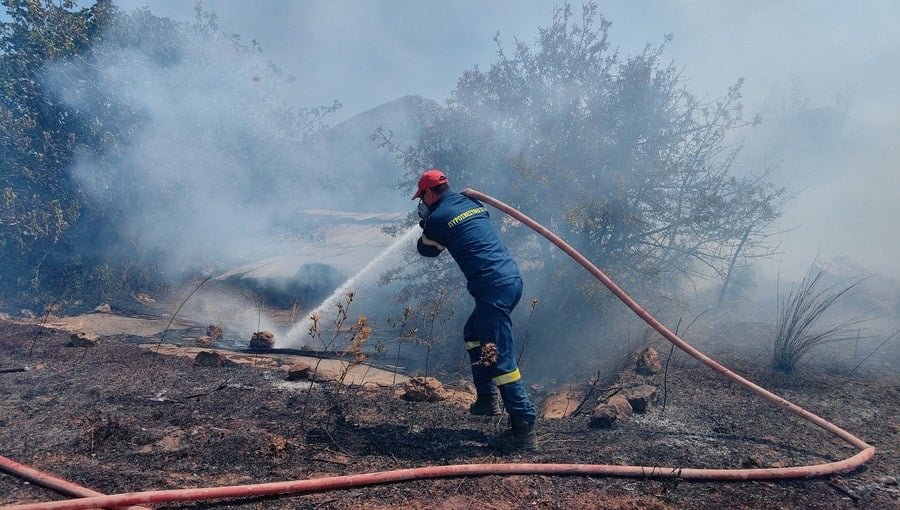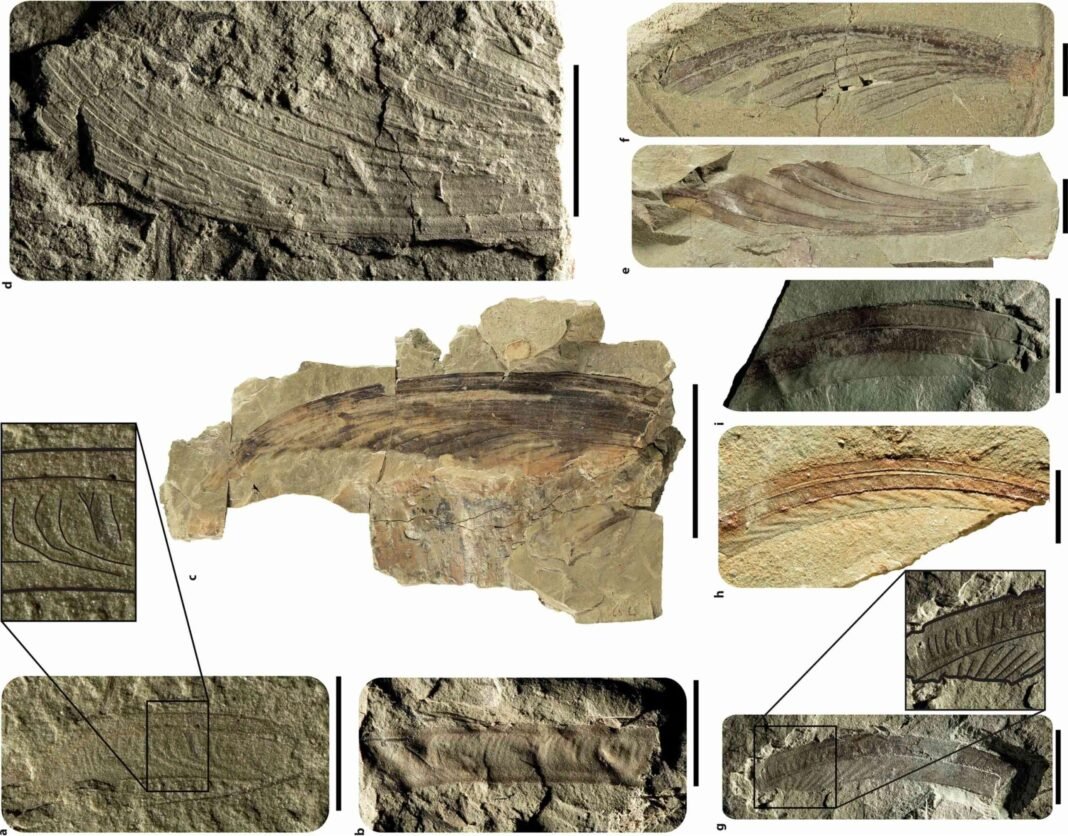
Wildfires are raging across Greece on Saturday, threatening human lives, livestock, nature, industrial and residential properties, amidst a prolonged heatwave.
Fire Brigade representative Vasilis Vathrakogiannis confirmed to the media in the evening that emergency fire support has been requested by the EU Civil Protection mechanism.
Greece has asked for six firefighting aircraft to join local forces as the situation remained difficult in Kythera, Evia, Messinia and Attica.
Multiple evacuations as fires rage across Greece
A new fire broke out on Saturday evening in the region of Chania, Crete, where villages and settlements were evacuated as houses were engulfed in flames.
Meanwhile, evacuation continued by sea at Kythera island late on Saturday, where Hellenic Coast Guard and private sea vessels evacuated citizens from Limnionas Beach. Early into the day, ten more settlements on the island were also evacuated.
Besides Kythera, the 112 emergency alert warning to urge evacuation was activated in Polythea, Messinia, southern Greece, and Evia island, central Greece, where the area of Pissonas suffered serious damages and the village remained under high risk.
A massive fire erupted in Kryoneri and Drosopigi in Attica, Athens metropolitan area, later on Saturday, prompting residents to flee.
The Fire Brigade has also been battling with fires in Kastoria, Kozani and Thessaloniki in northern Greece.
Houses burning in Athens metropolitan area
In Attica, Athens metropolitan area, dramatic efforts were underway in the afternoon and evening hours to save houses from burning at Drosopigi and Kryoneri, which were also evacuated as the blaze approached.
One front of the large wildfire that started at Drosopigi had reached the main square of Kryoneri and was burning houses on Saturday evening, Giannis Moniakis, special advisor to the mayor of Oropos on Civil Protection issues, told AMNA.
The fire was fully active on two fronts, the second front being located on the edge of the Drosopigi settlement, where houses were under threat and a car had already burned. According to Moniakis, the situation is still difficult and unpredictable in terms of how it will evolve, as the area is experiencing wind gusts of of 7-8 Beaufort that resemble fiery bursts.
Evia wildfire raging out of control
Among several wildfires across Greece on Saturday, the largest one was raging out of control in Pissonas, Evia, where four firefighters were reported slightly injured and two fire engines were destroyed in the blaze.
Firefighting and police forces are making huge efforts to contain the fire front before it crosses the Artaki-Kymi provincial road.

The 112 emergency alert warning earlier called for residents in Pissonas to evacuate immediately and head towards Afrati for their safety.
The situation was critical, as eyewitnesses reported to AMNA that if the flames breach the provincial road, there is considerable risk that the fire will advance toward Pissonas village. The blaze has already reached poultry and pig farms, which were engulfed in flames, causing significant damage to infrastructure and livestock.
All available ground forces are operating in the area, while one helicopter and two firefighting aircraft are engaged in aerial operations, battling both time and strong winds that are hindering the firefighting effort.
Sixty firefighters, two ground teams, eighteen fire engines, volunteers, as well as water trucks and heavy equipment from local authorities are attending, with focus on critical points to stop the fire from spreading further.
Conditions remain extremely difficult though, as the fire is burning through dense vegetation, and shifting winds are constantly changing direction, thus threatening new areas and complicating strategic planning by the Fire Brigade.
Areas of Greece in high risk of wildfires
A Fire Risk Forecast Map issued on Saturday by the General Secretariat for Civil Protection highlighted areas in extreme or very high risk of fire as Greece continued to be faced with high temperatures this week.
The latest heatwave prevailed on Friday in many parts of the country, with temperatures exceeding 42°C (107°F) in many areas and reaching 44-45°C (113°F) locally.
The network of automatic weather stations of the National Observatory of Athens observed the highest temperatures in Greece during the current heatwave in Epirus, Western Greece, Thessaly, the Peloponnese, southern Crete, and Macedonia. The maximum temperature was recorded in Skala, Messinia and was 45.8°C (114°F).
Very high temperatures were recorded across a wide geographical area, the report notes, and it is estimated that an astonishing 85 percent of Greece’s population experienced maximum temperatures above 39°C (102°F).
In the prefecture of Attica and the city of Athens, in specific, the temperature exceeded 40°C (104°F) in most areas, prompting authorities to close the Acropolis and surrounding ancient monuments to the public during the peak hours of the heatwave between noon and 5 pm Greek time between July 25-27.


